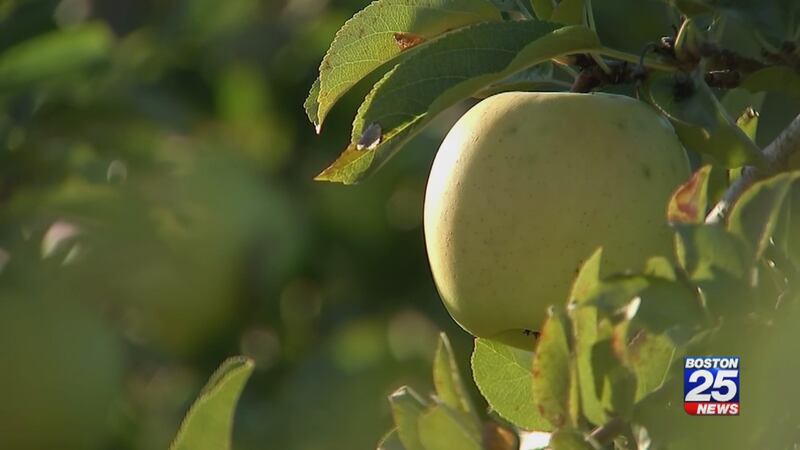Anyone who was in New England for this year's winter and spring can attest to one thing - it was a cold start to the year.
Despite the hot, muggy summer, the change in temperatures in the spring was detrimental to the apple harvest we are seeing now.
"This year was a particularly cold spring," said Alex Dowse, an apple farmer at Dowse Orchards. "The fruit set was a little lighter on some variety and heavier on other ones depending on where it was in the course of spring and May."
Now that temperatures are dropping again, its time for Dowse to reap what he spent months and months sowing. However, Dowse says the cold and wet spring we had this year limited the amount of pollination bees did to the flowers.
"The bees said, 'No, we are taking today off, it’s too cold [and] it’s too wet' and because of that now we’re seeing less apples on some varieties [and] not all varieties," said Dowse.
At Dowse Orchards, that's become clear as their cold stock room would normally be completely full of apples, but this time around there's plenty of space left unused.
"We wanted to take advantage and do some apple picking in the fall," said Siroun Majarian, an apple picker. "Before it gets too cold."
But, Dowse reassures apple pickers - the shortage of apples will not affect your apple picking plans this fall.
As for grocery stores, Dowse also says the shortage won't even be noticable to consumers.
"For most customers no, they would not see the difference," said Dowse. "The flow of apples to flow through the supermarkets stays pretty constant."
Essentially, Dowse says those most affected by the shortage are the farmers.
"We won’t earn as much money, we will have to watch [our] expenses going into next year," said Dowse.
>> RELATED: Family's lemonade stand raises nearly $25K for Children's Hospital
Cox Media Group







